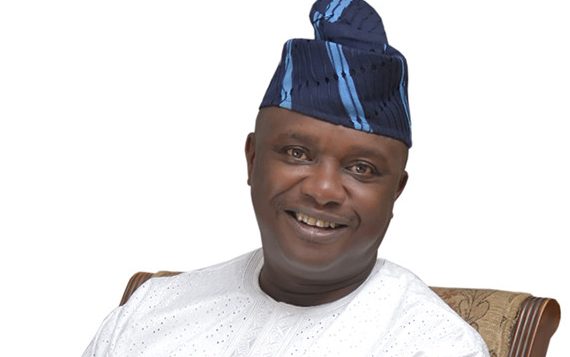President Muhammadu Buhari is a fix on signing or not to sign the re-amended 2010 Electoral Act (Amendment) Bill 2022.
The Senior Special Assistant on National Assembly Matters (Senate), Senator Babajide Omoworare, made this known on Thursday.
Omoworare spoke at a Policy Dialogue programme organised by the National Institute for Legislative and Democratic Studies.
He explained that President Buhari was receiving consultations from the Attorney General of the Federation and Minister of Justice, Abubakar Malami, on how to handle the bill.

He said: “A very crucial consultation is going on between Mr. President, the Attorney General and other critical stakeholders on content of the bill for the required assent.
“If not for this programme, I am suppose to be at the very important meeting believed to be the major determinant for the fate of the bill.”
Omoworare, however, assured Nigerians that the bill will most likely be assented to by the President since issues earlier raised by him in the 2021 edition were elaborately addressed by both chambers of the National Assembly last month.
He said: “Personally, I think in a few days time, Mr. President will do the needful since the most contentious aspect of the bill had been addressed in the reworked one transmitted to him on Monday, January 31, 2022.
“Time as it is, is of essence, but I believe that Mr. President will do the needful.”
The Director-General of NILDS, Prof. Abubakar Sulaiman, in his remarks at the event said the dialogue was convened in gaining insights from stakeholders into the issues likely to shape the conduct of political parties, political gladiators, contestants and other issues.
Virtually all the discussants at the policy dialogue from the former Chairman of the Independent National Electoral Commission, Prof. Attahiru Jega; Country Representative of Westminster Foundation for Democracy, Adebowale Olorunmola; and Chairman, House of Representatives Committee on Media, Hon. Benjamin Kalu, appealed to President Buhari to assent to the bill without further delay.
Jega in particular said no law or legislation is perfect, but what is available now is good and manageable for the coming elections.
But the representative of INEC at the discourse, Prof. Bolade Eyinla, said to avoid the problem of working on electoral laws at the tail end of conducting elections, INEC should be allowed to drive the process as being done in Ghana.
Eyinla said: “The situation at hand now is that roughly a year to general election, the anticipated laws are not yet approved, meaning that the extant one will be used aside the fact that the process has not enabled INEC to come up with clear cut guidelines for conduct of the elections.”


